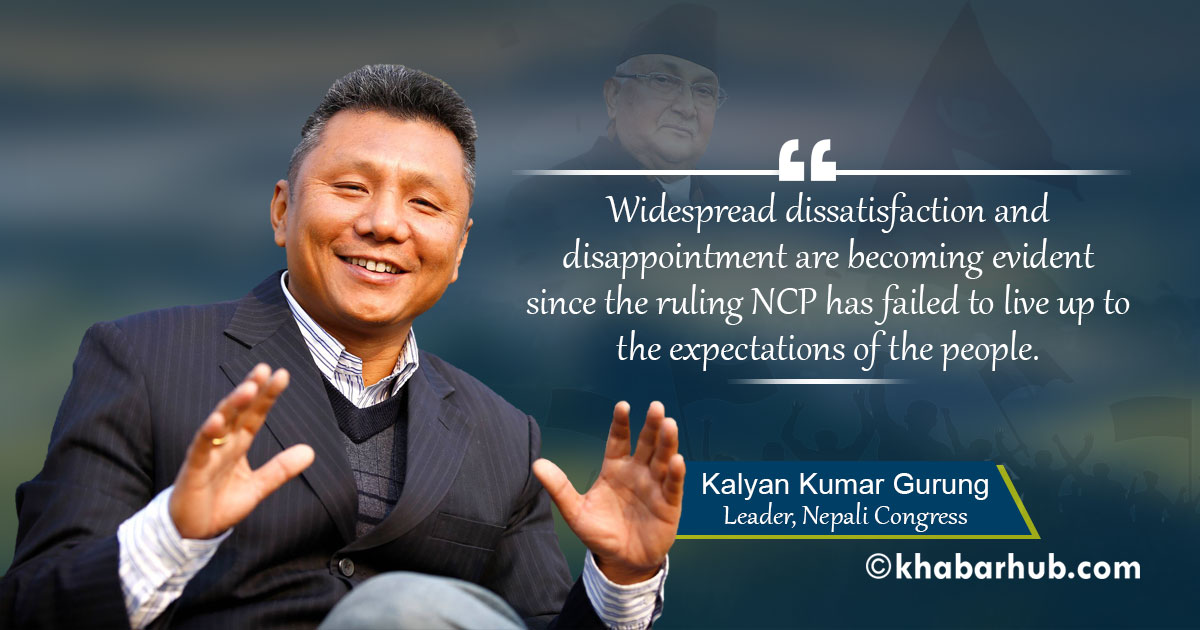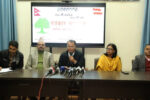Hopes were high after Nepal got a new constitution in 2015, and consequently conduction of the parliamentary elections in 2017.
After years of political wrangling and the conduction of the parliamentary elections, the Nepal Communist Party (NCP) formed the government. People had high hopes. They assumed that a new era was supposed to begin.
However, democratic transformation leaves much to be desired. Widespread dissatisfaction and disappointment are becoming evident since the ruling NCP, which acquired power by mesmerizing the people, by making tall promises, has failed to live up to the expectations of the people. People feel alienated from their representatives.
Evidently, a large chunk of the population is disenchanted. However, a positive aspect is that people are feeling more engaged in politics.
Notwithstanding the efforts, there is a still a shortfall between peoples’ aspirations and what the government has delivered so far. In this regard, a new endeavor and commitment from the government’s side needed.
Having a cursory look at social media indicates the suffocating level of mistrust and disappointment towards the government.
Barring a few, the trust in government has been declining. A sense of underperformance of the government is widespread. People’s expectations have gradually waned, and the gap between the government and the people appears to be widening. Barring the ruling party’s supporters, or those enjoying the benefits from the government’s coffer, the rest express the opposite sentiment.
Evidently, a large chunk of the population is disenchanted. However, a positive aspect is that people are feeling more engaged in politics.
Treating the opposition and the common people as a different species is one of the reasons for what’s happening at the moment. Therefore, rebuilding an environment of trust is the need of the hour, and the people’s representatives need to think over it. Nepal’s democracy needs to function properly and people need to be more engaged with the government. For this, the government needs to bring policies and programs that would narrow down the differences with the people.
Institutions have been weakened and authoritarian trends are overwhelming transparency and participative rule by stifling dissent.
The trend of political opportunities has to end. The corrupt should get the whip since the government’s primary challenge need to be harsh on corrupts. The government’s organs, institutions, and the constitutional bodies — which actually should work for the people and not become loyal to a handful of political bigwigs — have weakened further.
Institutions have been weakened and authoritarian trends are overwhelming transparency and participative rule by stifling dissent.
Therefore, the government needs to perform some noticeable things from repairing the dilapidated streets and other structures to controlling the sky-rocketing market price hike.
The question arises: Isn’t it the government’s responsibility to ensure the values of democracy, freedom, equality, and human dignity? Political leaders should understand clearly and recall the moments when people rallied or took to streets to establish democracy in the country. They should recall the commitments made during the election campaign before the people to rebuild the country by working to end all perennial problems. It is high time that the leaders and the government focused on justice, maintaining law and order, unity and peace, among other pertinent issues.
In fact, those in power need to think that no one is above the people. The question is, isn’t it reprehensible that only a handful of politicos and their people in the kitchen cabinet have benefited while the majority of the citizens remains discarded? Another question is, how many common people’s children have benefited from scholarships? The education system is worrisome. An issue to ponder, indeed.
Despite claims, the security situation has not changed for the better. Those in minorities still feel less equal.
Common people are still devoid of government facilities. The cost of living has gone up. The economic situation is worrying. Mismanagement is rampant. Big projects are in limbo. Important documents are gathering dust on the table of the ministers. However, the government is still making tall claims of heading towards prosperity.
Therefore, public trust in government has deteriorated in recent times. People have the right to question the government and the representatives. Yet, the government has disappointed its people.
Merely giving tall promises or slogans will not fill hungry stomachs or run homes. The government’s slogan of “Prosperous Nepal, Happy Nepali” has benefitted a certain section of the society and top notches. It has not been an inclusive slogan practically.
Despite claims, the security situation has not changed for the better. Those in minorities still feel less equal.
The series can go on. However, as I said earlier, people supporting the governing party tend to give more positive evaluations of the government’s performance.
Now that the government with a two-thirds majority needs to measure the people’s displeasure, and understand their causes of unhappiness.
People, too, should not remain silent. They should continue to raise their voice to make the country prosperous.
(The writer is a Nepali Congress leader)
Views expressed in this article are the author’s own and do not necessarily reflect the stance of Khabarhub.









Comment